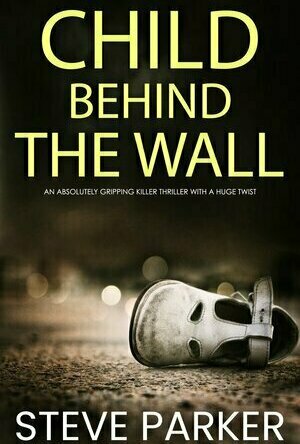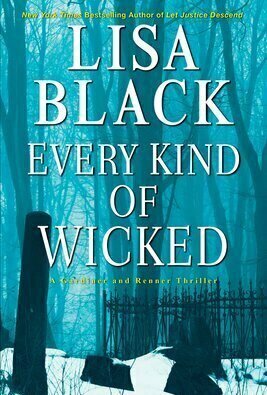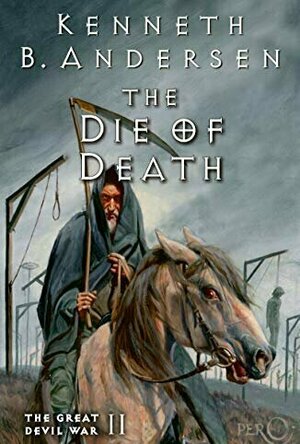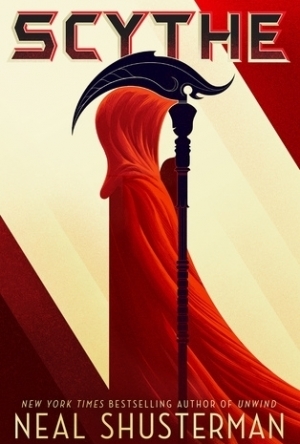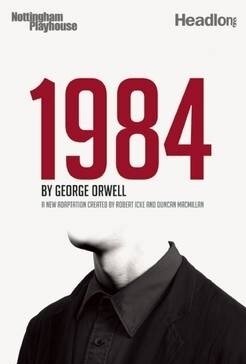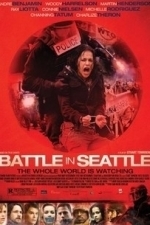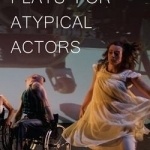
Atypical Plays for Atypical Actors
Book
Although disabled characters appear often in plays within the Western theatrical tradition, seldom...
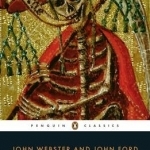
Duchess of Malfi, the White Devil, the Broken Heart and 'Tis Pity She's a Whore
John Ford, John Webster and Jane Kingsley-Smith
Book
These four plays, written during the reigns of James I and Charles I, took revenge tragedy in dark...
Hazel (2934 KP) rated Child Behind The Wall in Books
Sep 19, 2020
On his website, Mr Parker describes "My style of writing is hard-hitting, fast-paced, violent and carry moral messages that you might have to dig a bit deeper for. I try not to use more words than is necessary although more than a few of them are of the swearing variety. Hey! People swear. And they swear a ******* lot in my world. I will unashamedly tackle issues where some writers fear to tread." I would say this is a pretty accurate reflection - this book is not for the feint-hearted; it contains bad language and graphic scenes which leave nothing to the imagination so be warned!
This is a fast-paced, action packed read from the first to the last page with twists and turns and shocks along the way. The characters are an interesting and eclectic bunch with the 2 main protagonists of Paterson and Clocks being, what I would describe, an acquired taste - Mr Parker advises that they are based loosely on characters he has known throughout his 20 year career in the Police ... all I can say is that if I knew Clocks in particular, I would have probably disliked him intensely on first impression however, I can see a very loyal friend who would do anything for you plus there is definitely a troubled softie in there. Having said that, I still found him annoying!
The main plot is hard-hitting and totally gripping - there is some humour interspersed throughout which did provide some much needed lighter moments. The sub-plots are intriguing and an interesting insight into the politics within the various echelons within the Police; these, I assume, are linked to previous cases covered in earlier books in the series. Like I said, I haven't read any of the others but didn't find this too confusing but I do think I was missing the backstory somewhat which probably impacted on my overall enjoyment of the story as a whole but this is my fault rather than the fault of the author.
This is a no-holds-barred, gritty thriller that I would recommend to any who enjoy the harsher stories dealing with horrific crimes but, as I have said, it does contain gruesome details of crimes against children so if this isn't your preference, then I wouldn't go there but you will be missing out on a really excellent book.
Many thanks go to Joffe Books via NetGalley for my copy in return for an honest, unbiased and unedited review.
Christine A. (965 KP) rated Every Kind of Wicked (Gardiner and Renner #6) in Books
Aug 25, 2020
Every Kind of Wicked by Lisa Black is the 6th book in her Gardiner and Renner series. I have not read any of the earlier books so, to give a fair review., I read the 1st book, That Darkness. While some novels allow you to pick up in the middle of the series, having a basic understanding of the main characters helped reading Every Kind of Wicked. I will include a description of them below this review.
Maggie Gardiner and Jack Renner investigate a murder which occurred where they first met, in the Erie Street Cemetery. She is having difficulty dealing with the events of the last eight months, and Rick, her ex-husband, is suspicious of Jack. Rick wants to investigate Jack and his past.
Black's Gardiner and Renner are an interesting duo. If you have not read any of the Gardiner and Renner series, think Bones meets Dexter. They allow people to believe they are dating to throw off any suspicions they have of Jack. The event which brought them together continues to pull them closer.
Once I knew who the characters were, I enjoyed the book. I will continue reading the series and start Black's Theresa MacLean series.
This 200-word review was published on Philomathinphila.com on 8/25/20.
Here is what you need to know to get the most out of Lisa Black's Gardiner and Renner series before reading book #6.
Maggie Gardiner forensic investigator for the Cleveland Police Department and she is good at it. She works alongside the homicide detectives, including Rick, her ex-husband, and Jack Renner. Maggie and Jack met eight months prior while working a case involving a Jane Doe discovered in the local cemetery.
Jack has a mission. He needs to find the women he is hunting, and has been hunting, through several states.
Maggie follows all of the clues which keep pointing to one person - Jack. After confronting Jack, Maggie needs to decide if it is moral to kill someone that has harmed others and that will do harm again. She agrees to give Jack time to leave so as not to arouse suspicions that the serial killings stopped when he left Cleveland.
At some point after the first book, That Darkness, but before the 6th book, Every Kind of Wicked, Rick becomes suspicious of Jack. He is determined to show Maggie the kind of man Jack is.
Ivana A. | Diary of Difference (1171 KP) rated The Die of Death in Books
Oct 2, 2020
Philip is a good boy, but he ends up in Hell by mistake. And on top of that, he is chosen to be the Devil’s Apprentice. Even though he’s always be good, he is not good at being bad. A danger occurs in Hell and the Devil is dying. When Philip solves the mystery, he returns on Earth to continue his normal life.
But when the future of the underworld is threatened once again, they need Philip’s help. Death’s Die has been stolen, the one that decides when each person is going to die. Because of that, immortality is now spreading. Philip goes back to hell to solve the mystery, but during his adventures he discovers some horrible truths…
I really have no clue why it took me quite a long time to get to the second book, but I am so happy that I finally got to read it, and endeavour this story.
It is so unique and I am in love!
The chapters just flow through – even better than the first book – and within minutes you are captured in this world, full of good and evil, or decisions being made that question your moral time and time again, in a very understandable way for young adults as well.
The story of the Die of Death, and the scenes related to it were my favourite. I love what Kenneth created, and how Death rolls a dice at the beginning of each life, that determines how many years each person gets to live. I loved how everyone had their own hourglasses and the mysterious snake that guards them.
We get to see the Purgatory in this book too. Only for a moment, but it was wonderful to read about it. It reminded me so much of Dante’s inferno, and I loved it! There was also the theory of reincarnation, told by a dog – a scene that was quite powerful! We even got a glimpse of Heavan, a few mentions here and there, that made me want to know more.
I like Philip as a character, but Satina was my hero! She has the best comment on everything, and they make such a good team with Philip. Also – did you know Hell has its own newspaper? It’s called Hell Times! So cool!
I loved this book. I cherish it. And I can’t wait to see what happens next and I highly recommend it to you – especially this month, as it’s Spooky October already!
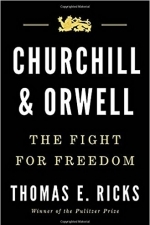
Churchill and Orwell: The Fight for Freedom
Book
A dual biography of Winston Churchill and George Orwell, who preserved democracy from the threats of...
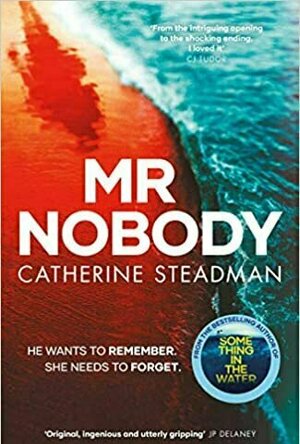
Mr. Nobody
Book
When a man is found on a Norfolk beach, drifting in and out of consciousness, with no identification...
A Bibliophagist (113 KP) rated Scythe (Arc of a Scythe #1) in Books
Jan 27, 2020
So in a New year new me moment, I forced myself to pick up two popular books that I was not interested in. Since they were both YA, they'd be quick reads and my expectations could below. I also forced my picks to not be hard SciFi, as I need to step out of my comfort zone. I picked this up, and developed more concern when I noticed how divided the reviews were, I noticed people were either firmly in the "this is my most favorite book ever" or in the "this is the most boring book ever I hated it" camps. I rarely rate books 1 or 5, so I wanted to see how I felt.
Honestly, I was very pleasantly surprised. This book is YA, and obviously has some YA aspects, but it doesn't follow the tropes unless stripped down to bullet points and is surprisingly well written. This well written aspect, with no intentions of making people mad, I think is why so many found it boring. If you primarily read YA, and are used to it's over the top writing, it's over the top dialogue and relationships and emotions, then yes, this book was probably horribly boring.
We do open with the standard tropes of uninteresting, normal girl and boy get thrown into something extraordinary. But that's where the stereotypes ended for me. The author quickly throws us into the world and the events of the story. We're in the future, who knows how far past the present, where society has overcome death. AI has evolved and "The Cloud" is now "The Thunderhead" a massive AI database that has solved most of the world's problems, eliminated poverty, war, government, created jobs for everyone, and even defeated death. We all have healing nanites that prevent illness and repair injury, and even in the case of death, we can be revived at a revival center and be greeted with some tasty ice cream. If we start feeling our age, we can just "turn a corner" resetting ourselves to a younger version of ourselves while retaining our memories.
Now, in a world without death, but babies are still being born, some form of population control is in order, the balance must be restored. So the world created the Scythedom. An organization outside the authority of "The Thunderhead" because death has and always should be a responsibility of the living. Those who become Scythes, must "Glean" (permanently kill) a quota of people every year to maintain population control. How they do so is up to them, but there are rules, a Scythe cannot show bias or malice in their choices, they cannot marry or have a family, they cannot kill another Scythe (but they can glean themselves) or someone with immunity, They may grant immunity to those they feel worthy, they must kill the families of those who resist, and they are above all other laws. The vagueness of these laws worked when the Scythedom was first created, but the world has become complicated, and some people have decided to find joy in what they do, even if it's killing.
Our story follows two teenagers who recently encountered the Honorable Scythe Faraday, Citra, and Rowan. Citra showed gumption and sass and moral balance, and Rowan held the hand of a boy that was not his friend as he was gleaned. Faraday is considered old school and chooses all that is gleaned by old school, age of mortality statistics. If a percentage of teenagers died in alcohol-related car accidents, he found a teenager with a penchant for drinking, who just got a car, and gleaned them. He believes the job is necessary, but should never be enjoyed, you need to be moral and compassionate and hurt every time. He is granted permission to take on an apprentice, and he takes on two, Rowan and Citra. Neither want it, nor should they, but should they become a Scythe, their families will receive immunity as long as they shall live, which in this day in age could be forever. So, reluctantly they both take it. There is a glamour to Scythedom as well, they'll wat for nothing, people will bend over backward to provide them with their desires in the hopes of immunity. If these two follow the teachings of Faraday, they won't be tempted by this, they won't abuse it, but not everyone feels the same way.
Citra and Rowan begin training (it gets a bit YAish here) studying history, poisons, combat, weapons. The goal to make them perfect, moral, compassionate, killing machines. Everything is going as well as it can, and luckily the book doesn't do what every other YA author would do and give us pages upon pages of the two falling in love, awkward encounters, stolen kisses. We have none of that thankfully. The dialogue is all purposeful and helps propel the plot, not flowery passages talking about teenage angst and feelings. But, it is a book, after all, so everything starts falling apart when a group of "New Age" Scythes, Scythes that believe they should enjoy their jobs, who take pleasure in mass killings (entire flights, festivals, food courts) stir things up at a Scythe Conclave meeting. They question if having two apprentices hurts whether or not the Conclave can judge the worthiness of either, or if them being friends will result in them always helping each other. How can they truly judge their ability if they always have each other's support? So they propose, since no law prevents it, that whichever apprentice should be chosen (remember Faraday was given permission to have ONE apprentice) will have to Glean the other. The Lead Scythe allows it, and honestly, this is one aspect of the book I struggled with, but I think was supposed to express the corruption of the Scythedom, at times when things aren't in writing they say "welp can't do it" and other times they say "welp nothing says we can't do it". Faraday attempts to free our two protagonists from their apprenticeships, but instead, they are separated, one going to a respected Old School Scythe, one going to the very modern group that started this whole problem, thrusting them into a world excess, deprivation, and honestly psychotic murdering. They now train, separately, knowing that one will die unless they can figure out a way to change things.
Even writing that sounds so Yaish, but it doesn't feel that way because it's so well written. The author doesn't give us Romeo and Juliet, no pining, no romance, just two kids trying to be that, good. Even when surrounded by something very bad. So, if you want to star crossed lovers, you won't like this book. If you like character development and struggle, you might like this book. We arguably see more of Rowan's development, Citra for me felt less focused on or given fewer opportunities for growth, and she had a bit of an attitude that made me no like her much, but given her circumstances, I UNDERSTOOD why she was the way she is, and I can't say I wouldn't be just as grumpy. If anything her response to the corruption and the situation felt very real, even if it sacrificed having a manic pixie daydream mary sue to project myself into. While appearances weren't really given for the two, setting them up to be good old fashioned Mary Sue and Gary Stu, they were very much their own people, with little room for the reader to pretend to be them. So another star in the breaking the YA mold category. We watch them struggle with where they are, and how to come to terms with their inevitable future, either being takers of life or having their life taken.
Overall this was refreshing, while it was an easy read and was a good "palette cleanser" and m boyfriend calls my YA marathons in between books that actually linger in my soul. It felt elevated, sure it was still very much YA, but it was more thought out than the standard, it focused on the story and not the romance, it focused on important things, and it never lost sight of its story. I started at 11am on a Sunday and Finished by noon on Monday, eager for the next. It was an unexpected, refreshing read, with a unique concept that has room for more. The sequel doesn't feel forced, and if I never got it, this story is finished, but the world and situation created to allow for more, without feeling like a forced trilogy. I wanted to know how this story was going to play out, and now that it has, I want to know how the next story in this set up plays out.
Jamie (131 KP) rated 1984 Nineteen Eighty-Four in Books
Jun 4, 2017
Nineteen Eighty-Four was not an easy ready by any means, it’s startlingly brutal. The beginning starts off rather slow as the readers gets to know Winston, the way he thinks and learns about his every day routine and are introduced to key characters. The middle of the book picks up, but it breaks up the pacing of the novel due to the fact that it essentially turns into an essay that outlines the structure of the party and the moral implications of it’s actions. While info dumps can be a bit disjointing to read, I could bear with it for this novel. The third half of the novel caught me off guard and it spun wildly out of control. I loved it, even when I found it difficult to digest. This is what made the book so brilliant, it doesn’t just tell you about right and wrong and then wrap things up nicely, the horrible reality of the book comes crashing down on both Winston and the reader’s head in full force.
The power structure of the party is just downright diabolical. I could think of any other way to describe it; the method of control, the reasons for maintaining such a strict social order, the sheer scale of the party’s reach – all of it was terrifying when taken as a whole. There were points in the second half of the novel where I had to put the book down because it was stressing me out too much, and this was a first for me. I now understand fully what folks mean when they label something as “Orwellian,” and why this novel is hailed as one of the very best of the dystopia genre. Hell, there are others that I read that I thought were bleak, but none quite to this degree. Nineteen Eighty-Four makes other books in the dystopia genre seem like lighthearted adventures novels.
The novel is extremely effective in the delivery of it’s core message about government control and humanity by creating a potential future that is harrowing, particularly because of it’s plausibility, as a warning to all. This is the type of book that will stick with me for a long time and I’m glad I finally sat down to read it.
RəX Regent (349 KP) rated Battle in Seattle (2008) in Movies
Mar 7, 2019
This was basically a docudrama which melded the real and the reenactment together to create an at times frightening and tense view of the riots. Though this could have been any riot, over any subject, which was kind of the point. I feel that this could easily have been a film focusing on the Poll Tax riots of 1990 and have lost nothing.
I feel that this needed to be more, in every area. More Seattle Riots, and I mean in a way that singled them out as such, and not just any riot. More character drama, with barely scratched the surface at most and more political. This attacks the WTO with the lowest common denominator, playing the emotional and reactionary left wing card, rather than a fully rounded balanced argument.
I have no doubt that the World Trade Organisation is evil, as are most capital institutions, but there was little to convict them here, except the strong implications that they are against free speech.
This was a film which was fair to it's characters; The riot cop just doing his job, the peaceful protesters, the anarchists and the forlorn Mayer. But there was a lack of a strong villain, as, as I've said, the WTO wasn't sufficiently justified.
Also, its historical integrity has to be questioned. Simply put, are any of the characters portrait here real? The protesters are fictional, as I understand, but the Mayer? The reporter? It's not clear and based on their actions within the film, I would really like to know.
*** SPOILER *** But finally, the most disturbing and probably the best, most compelling part of this film to me would be the what happens to Charlize Theron's character, a pregnant woman and wife of Woody Harleson's riot cop. As she is trying in vain to make her way home amidst the chaos of rioters clashing with police and in the confusion is treated as a rioter and is hit in the stomach with a baton. The result I'll leave in your imagination...
This was best moment in the film were the true horror of these clashes become prevalent as the moral lines are crossed and order breaks down.
************** In summation, this was worth a watch but will offer little in the way of clarification as to the motives of the events of that November, but maybe there are no more. Maybe it was a riot which stemmed from a protest against the capitalist machine. If you have strong lefty views then this is the film for you, if not, have a look but I doubt that you'll be blown away.
